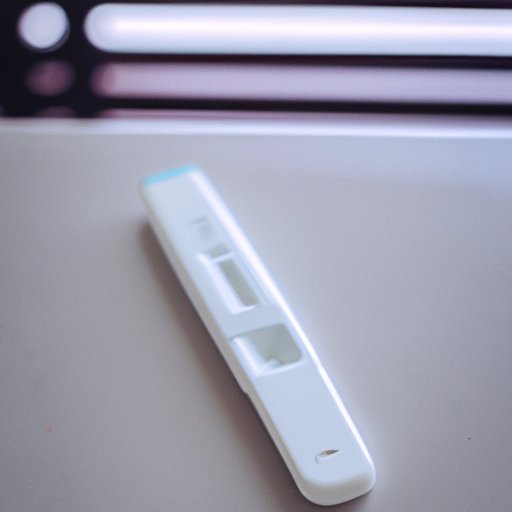Introduction
Pregnancy is an exciting time for many people, but it can also be a time filled with uncertainty. As soon as you’ve missed your period, you may start wondering if you are pregnant. Knowing the answer to this question as soon as possible can help you plan for the future. Fortunately, there are a variety of early pregnancy tests that can help you get an answer quickly.
Early pregnancy testing refers to any test that is done before a missed period. This can range from home pregnancy tests (HPTs) to blood tests that measure hormone levels. Each type of test has its own advantages and disadvantages, so it’s important to understand the different options available and when they can be used.
Accuracy of Early Pregnancy Tests
One of the most common questions about early pregnancy testing is whether it is accurate. The answer depends on the type of test used. Home pregnancy tests are generally very accurate when used correctly. They work by detecting the presence of human chorionic gonadotropin (hCG) in urine. According to a study published in the journal BMC Women’s Health, over-the-counter HPTs have a sensitivity of 97-99%, meaning they can detect pregnancy up to four days before a missed period.
It’s important to note that these results can vary depending on the brand of test used and when the test is taken. For the most accurate results, it’s best to wait until after the first day of a missed period before taking a home pregnancy test.
When comparing the results of early pregnancy tests with later tests, studies have found that early tests tend to be more sensitive. A study published in the journal Clinical Chemistry found that when compared to later tests, early tests were more likely to detect hCG at lower levels. This means that they are more likely to detect a pregnancy earlier than later tests.

Pros and Cons of Taking a Pregnancy Test Too Early
Taking a pregnancy test too early can have both advantages and disadvantages. On the plus side, taking a test early can give you peace of mind sooner rather than later. It can also help you make decisions about your future sooner, such as whether or not to continue a medication or make lifestyle changes.
However, there are also some potential risks associated with taking an early pregnancy test too early. For example, if the test is taken before the embryo has had time to implant in the uterus, the result may be inaccurate. This can lead to confusion and unnecessary worry. Similarly, if the test is taken too early, it may not be able to detect low levels of hCG, leading to a false negative result.

Cost of Early Pregnancy Tests
The cost of early pregnancy tests can vary depending on the type of test used. Home pregnancy tests are typically very affordable, ranging from $5-$20 for a single test. However, some brands of tests may be more expensive than others.
Blood tests for pregnancy are usually more expensive than home tests. These tests are usually done in a doctor’s office and can cost anywhere from $50-$200. However, they may be covered by insurance, depending on your plan.
Conclusion
Early pregnancy testing can provide answers to those who are curious about their pregnancy status. Whether you choose to take a home pregnancy test or a more costly blood test, it is important to understand the potential benefits and risks associated with each type of test. Home pregnancy tests are generally very accurate when used correctly and are much more affordable than blood tests. However, it is important to note that results may be inaccurate if the test is taken too early.
Overall, early pregnancy testing can be a helpful tool in providing answers to those who are wondering if they are pregnant. Understanding the different types of tests available and when they can be used is key to getting accurate results.
(Note: Is this article not meeting your expectations? Do you have knowledge or insights to share? Unlock new opportunities and expand your reach by joining our authors team. Click Registration to join us and share your expertise with our readers.)
